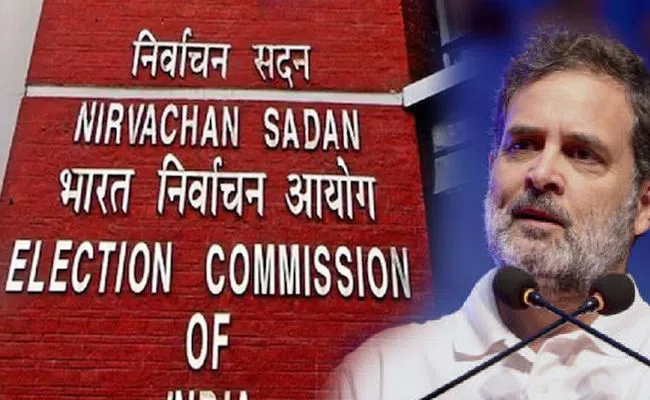
India News

Opposition Leader Rahul Gandhi’s allegations of rigging in the Maharashtra Assembly elections have drawn a sharp response from the Election Commission of India (ECI). The Commission called his claims baseless and an insult to democratic institutions and procedures. In a statement, the ECI clarified that it had already responded to the Congress party on December 24, 2024, and published all relevant details on its website. Repeating such claims, it said, amounts to deliberately ignoring the facts.
The ECI strongly objected to the propagation of "false information," stating that it not only disrespects the law but also tarnishes the credibility of thousands of party-appointed polling agents. “Such comments demoralize the lakhs of election officials who work tirelessly and transparently during elections. Making these accusations after an electoral defeat is both irrelevant and damaging to the democratic process,” the Commission said.
Rahul Gandhi had alleged that the Maharashtra Assembly elections held in November last year were rigged. He further claimed that a similar pattern of rigging would occur in the upcoming Bihar elections. He made these remarks on social media, sharing a news article that detailed his views.
According to Rahul, the 2024 Maharashtra elections served as a “blueprint” for rigging in Indian democracy. He claimed the rigging took place in five stages, starting with manipulation within the Election Commission. He alleged that fake voters were added to the electoral rolls and that bogus votes were used to ensure BJP’s victory. Rahul even compared this to match-fixing in sports, saying that “the party that cheats wins, but institutions and public trust are the real losers.”
He warned that what happened in Maharashtra was a precursor to what could happen in Bihar, stating that such “match-fixed elections” are poisonous for any democratic nation.
The controversy has now turned into a high-stakes clash between a national party leader and the constitutional body responsible for conducting free and fair elections — with implications for public trust, electoral integrity, and political accountability in the run-up to the next round of state polls.
Advertisment